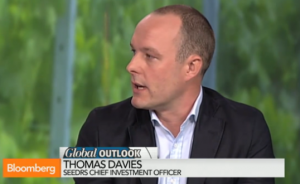Proving that Crowdfunding isn’t just for private companies publicly listed on the ISDX, English wine and beer producer, Chapel Down Group, has partnered with Seedrs and their P2P crowdfunding platform to sell their latest round of equity. The deal marks the first time in the world that a public company is using a crowdfunding platform to sell equity in their company to new shareholders. The structure of the deal is similar to when a public firm sells non-floated equity or convertible debt on which the securities trade on secondary markets, but their value is tied to stock prices of shares trading on the exchange.
In terms of equity crowdfunding, one of the advantages is that by selling small slices of equity to a large audience, it raises brand awareness of the company. On the other way round, a firm may find it difficult needing to answer ownership questions to a massive number of individual owners. In terms of Chapel Down, by utilizing a crowdfunding and public IPO, the wine maker is aiming at leveraging that efficiency of raising money from the capital markets, while also using Seedrs to increase their brand awareness.

Speaking to BloombergTV, Thomas Davies, Chief Investing Officer at Seedrs, cited two reasons for Chapel Down to crowdfund, as it offered them the ability to “reward existing customers to become shareholders in the company,” as well as helping them “acquire new customers”. In this regard, taking a page from non-equity crowdfunding platforms like Kickstarter, Chapel Down is offering Seedr investors incentives such as discounts for purchases of their products, as well as wine tasting tours.
Overall, the crowdfund sale represents one of the adages about open technology platforms, which is that nearly always customers find the best use cases for the product. In this example, Davies commented that it was Chapel Down that sought out Seedrs to Leverage their crowdfunding product to meet their needs, and advance it from being a purely equity selling platform of private shares to operating in parallel with their publicly traded stock.













